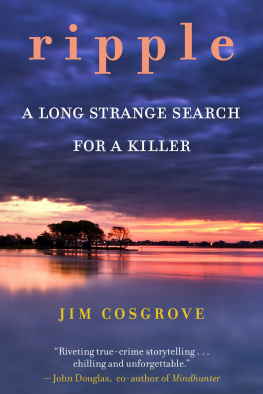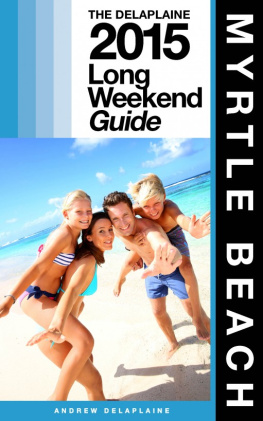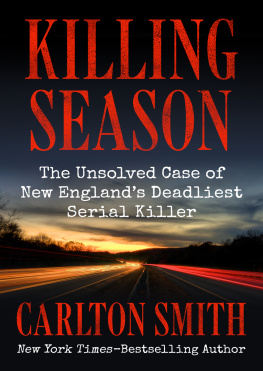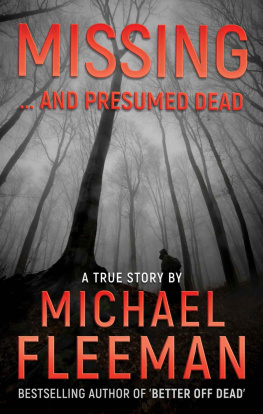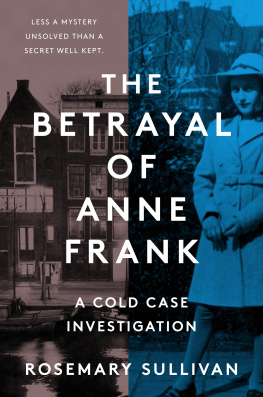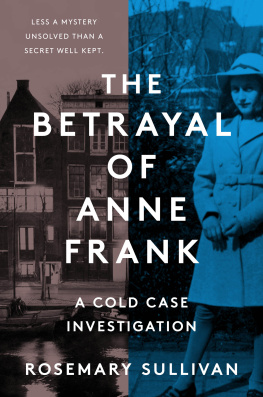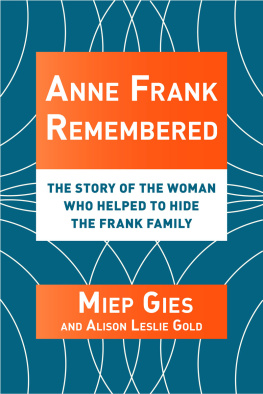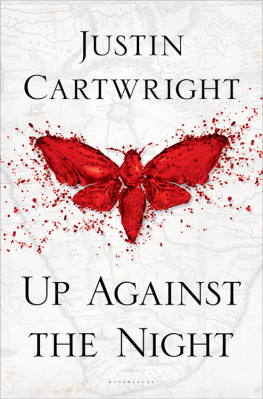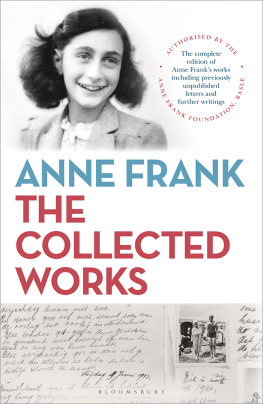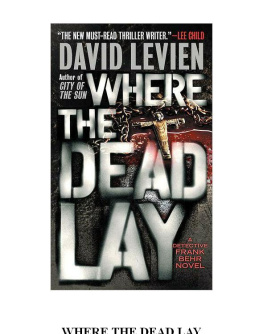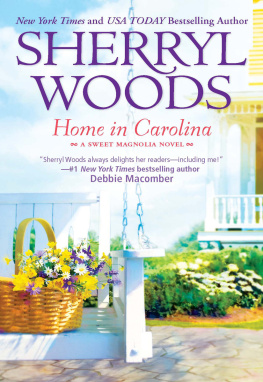Contents
Landmarks
Print Page List
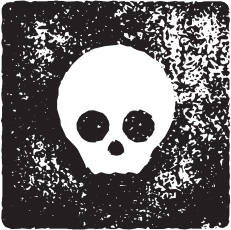
acknowledgments
The details of Frank McGonigles disappearance and death set up permanent residence in my brain more than a quarter century ago occupying thousands of hours of space on my cerebral hard drive, flitting in and out of my conscious and dream states, but mostly simmering on one of my subconscious backburners. Nearly everyone I know has heard some shred of this story. And for each of those compassionate and encouraging ears (even if you were only humoring me), I am grateful.
I have utmost respect and overwhelming feelings of gratitude for the McGonigle family, who so graciously allowed me into their lives to plunge deep into their feelings and their experiences. I know this wasnt easy it got gritty and uncomfortable at times. Thank you for your vulnerability and for sharing your love for Frank. Thank you for trusting me.
Thank you to my loving and patient partner, Jeni, who encouraged me from our first dinner date until the final edit. I cherish your eager brainstorming mind. And your editorial tweaks helped make this a better story. Your never-wavering love continues to sustain me. And to our daughters, Lyda and Willa, thank you for listening to me gnash and lament over the writing process for your entire lives. I love you always and forever.
Thank you to my siblings who were my first (and continue to be loyal) audience members. I so appreciate the way you and your kids cajoled me into retelling the story at family gatherings. You never gave up on the dream of publication. And special thanks to my brother Tom who helped me wrestle the fragments of the narrative into a form that made some sense and then eagerly accepted the role of wingman on a research trip to Murrells Inlet. I love you all.
I still stand in awe of Carol Williams. Thank you for your wise, heartfelt, and faith-inspired intuitions. Time after time you surprised me. And when I wanted to doubt or discount what was unfolding, you patiently led me into acceptance. Youve made me a believer. I will always cherish our friendship.
To Cynthia Nance and Paula Nance, you have both moved me by your strength and resilience. I am forever grateful for your vulnerability and your willingness to engage in some tough conversations and to dredge up uncomfortable topics with all the raw emotions that cling to them.
Thank you to the good people of Georgetown County, South Carolina, for your patience and eagerness to help. To Mack Williams, Im so grateful for your sincerity, compassion, and dedication to service. To Jim Fitch at the Rice Museum, thank you for your hospitality and friendship and for your willingness to share curious background details. (And it was pretty cool for you to let me borrow your vintage Mustang convertible.) To Joey Howell, thank you for receiving my endless calls and texts and for your patience and forthrightness. And many thanks to Craig Hair; Mary Boyd at the Georgetown County Museum; Harold Buster Hatcher, Chief of the Waccamaw People; Robin Salmon at Brookgreen Gardens; Julie Warren at the Georgetown County Library; the crew at the Georgetown County Sheriffs Department; and those who requested anonymity.
To my dear agent, editor, and friend Delia Berrigan, you rock! Thank you for believing in this story and, more important, for believing in me as a writer and storyteller. Your keen editorial sensibilities and savvy negotiating skills made this manuscript market ready.
Thank you to Mark Olshaker and John Douglas for your guidance and encouragement.
Thank you to fellow writers Dawn Downey and Jessica Conoley for helping me dust off my original draft and breathe life back into it. Your insightful edits and critiques have made me a more confident writer.
Many thanks to the remarkable team at Steerforth Press Chip Fleischer, David Goldberg, Anthony LaSasso, Helga Schmidt, and Devin Wilkie. Thank you for taking a chance on me. Your genuine enthusiasm and support helped make this process easy.
And thank you, dear reader, for your support of the literary arts by taking time to read my story.

chapter one
If you moved at a steady clip, cut through a few yards, and hopped a couple of fences, you could get from our house to the McGonigles in about twelve minutes. They lived half a mile from where I grew up in the Brookside neighborhood of Kansas City, and their family looked a lot like ours big, Irish, and Catholic as was nearly every other family in our freckle-faced, Friday-fish-eating community.
And if you werent Irish, well, tough luck. In the blocks surrounding our house lived the Kennedys, McQueenys, McShanes, OMearas, OSullivans, OTooles, Donnellys, Hogans, Hadens, Monaghans, Murphys, and a dozen others, along with a handful of German Irish and French Irish families. On our street alone lived twenty-two kids under the age of seventeen. If a family had fewer than four children, you figured something must have gone wrong. Except for the few publics, we all went to St. Peters for church and school. And we walked there and back in gaggles, clogging up the sidewalks.
As a kid, I assumed that if you werent Catholic, you were Jewish. In our part of town, you were one or the other. I discovered later that most of the white Protestants had fled across the state line into the Kansas suburbs to escape the unrest and tension following the assassination of Dr. Martin Luther King Jr. in 1968 and the failure of voters in 1969 to approve a tax increase for the cash-strapped Kansas City School District. Most of the white Catholics and Jews remained because they had their own schools. I didnt know the few Protestants who stayed, because they didnt have kids. It turns out they were the older couples who yelled at us to get off their lawns.
None of us kids thought it odd that most of the Catholic families were also members of the Jewish Community Center. Its just where we hung out. We were welcomed and comfortable there, and we shared some common bonds with the Jewish kids an oppressive litany of archaic religious rules, heaps of guilt, and overbearing mothers. Besides, the JCC had a massive outdoor swimming pool and the best baseball league in town with the coolest wool uniforms with stirrup socks.
My parents and the McGonigles parents were part of the first wave of postSecond Vatican Council social justice Catholics. They rallied for peace, protested nuclear weapons proliferation, and worked for racial equality in our city. My father was one of the dozen white lawyers who succeeded in demanding that the local Kansas City Bar Association open membership to African American attorneys. Our parents became active in organizations like Kansas City Crisis, founded in the late 1960s by black and white families dedicated to maintaining positive dialogue. I remember meetings in our house where the kids played upstairs, and the adults met downstairs to address envelopes and engage in spirited discussions. We met in the homes of black families, too on the other side of Troost Avenue, just a mile and a half to the east and the unofficial (yet understood) dividing line between black and white Kansas City. Despite their well-meaning efforts, little progress was made toward integrating our city, and we, the Brookside children, remained blissfully oblivious in our lily-white bubble.
Everyone in our part of Kansas City knew the McGonigles. Aside from their abundant contribution to the human population, the family had a regular place at dinner tables throughout the neighborhood. Sundays pot roast, Thanksgivings turkey, and Easters ham likely came from the meat cases at McGonigles Market. Their name was synonymous with quality meat. Even their family station wagon was endearingly dubbed the Meat Wagon.

